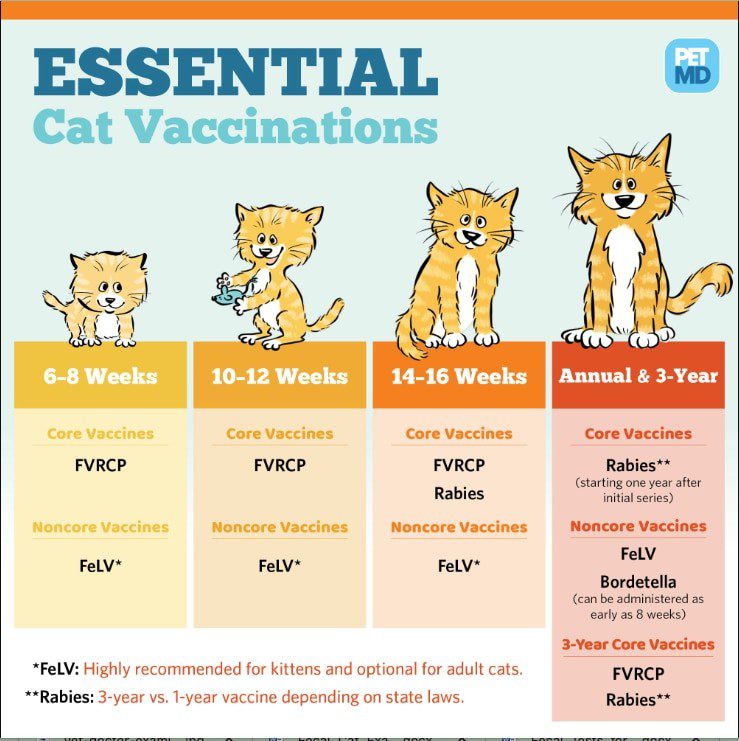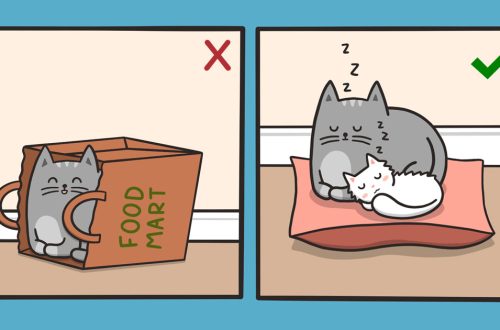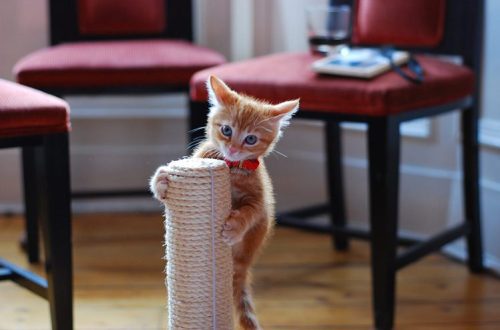
What vaccinations are given to kittens?

Contents
Why do kittens need vaccinations?
To protect against diseases, specific immunity is needed, which is produced either as a result of an illness or through vaccinations (vaccination). The specificity of this immunity means that in the body of a kitten there are antibodies to a certain virus, upon encountering which they will protect the kitten or adult cat from the disease.
A kitten can be absolutely healthy, grow and develop well, but be defenseless against the cat distemper (panleukopenia) virus if he has not been given the appropriate vaccinations. Of course, a healthy and strong kitten is more likely to survive this disease, but why put his life in danger when you can get a preventive vaccination? That is why vaccines have been developed for the most severe and common diseases that can protect and sometimes save the lives of pets.
What vaccinations are needed?
There are core vaccines for major diseases and supplementary vaccines for choice or need. The basic vaccination for all domestic cats is considered to be vaccination against panleukopenia, herpesvirus (viral rhinotracheitis), calicivirus and rabies. Additional vaccinations include feline leukemia virus, feline immunodeficiency virus, feline bordetellosis, and feline chlamydia. Which vaccine to choose and which additional vaccines to include, the veterinarian will advise after examining the kitten and discussing with the owner the expected lifestyle of the pet.
When to start?
Kittens are vaccinated no earlier than 8–9 weeks of age. This is due to the fact that antibodies in the blood of kittens are transmitted with the mother’s colostrum, which can interfere with the formation of immunity in response to the vaccine. Some kittens have low antibody levels, while others have high levels; antibodies are on average present in the blood until 8–9 weeks of age, however, in some kittens, they may disappear earlier or, conversely, persist longer, up to 14–16 weeks.
Vaccination schedule
Vaccination against panleukopenia, herpesvirus and calicivirus is carried out several times, with an interval of 2-4 weeks. As a rule, 3-5 vaccinations are recommended in the first year of a kitten’s life. In this case, the vaccination against the rabies virus is done once, with revaccination one year after the first injection. The first rabies vaccine can be given at 12 weeks of age.
Preparation for vaccination
Treatment for internal parasites (helminths) is required prior to vaccination and is usually started at 4 to 6 weeks of age and repeated every two weeks until 16 weeks of age.
Important:
Not all medications are safe for kittens, so check with your veterinarian about this. At the time of vaccination, the kitten must be healthy: it is not recommended to administer the vaccine to animals with symptoms of diseases.
23 2017 June
Updated: October 5, 2018





